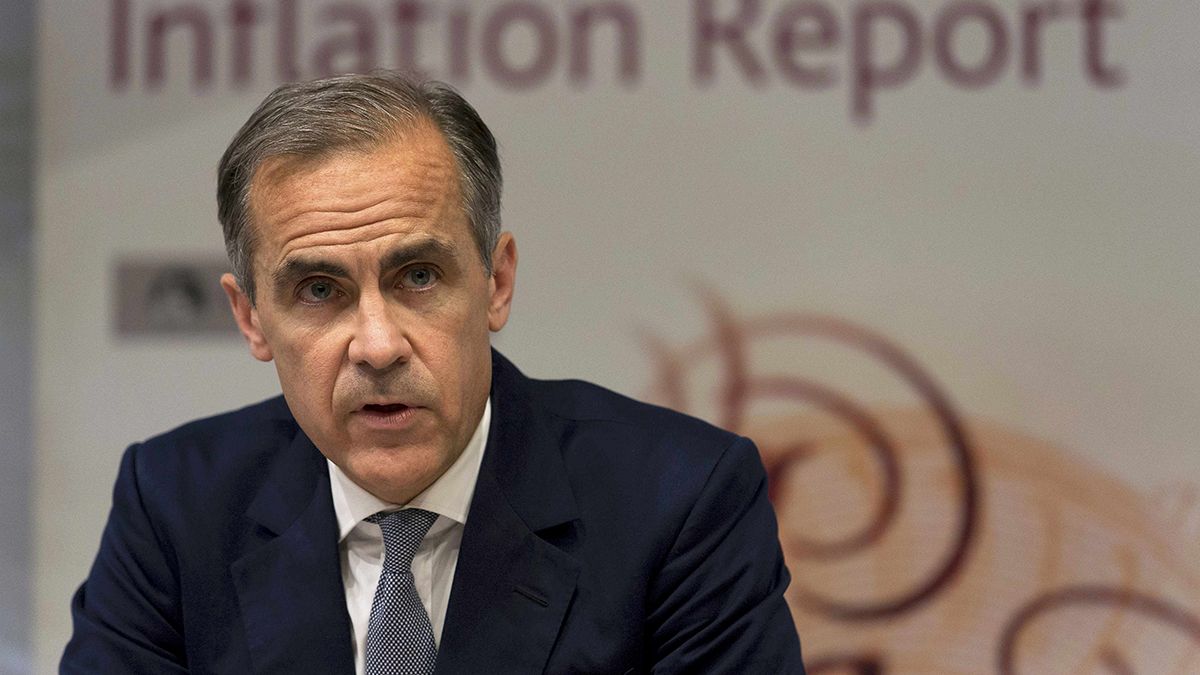Britain's central bank has unveiled a series of stimulus measures to help protect the economy from the effects of the vote to leave the European Union.
Britain’s central bank has announced a series of stimulus measures to help protect the economy from the effects of the vote to leave the European Union.
They include cutting the benchmark interest rate from 0.5 percent to 0.25 percent and buying more government bonds with newly created money to pump tens of billions of pounds into the economy.
“By acting early and comprehensively, the (Bank) can reduce uncertainty, bolster confidence, blunt the slowdown and support the necessary adjustments in the UK economy,” Bank Governor Mark Carney told a news conference.
MPC vote to cut #BankRate to 0.25% and for a package of measures designed to provide additional monetary stimulus pic.twitter.com/vyqHCgYork
— Bank of England (@bankofengland) August 4, 2016
Lower growth, higher unemployment
Carney said uncertainty from the Brexit vote will mean less demand, so businesses will cut their output reducing GDP growth and putting people out of work: “The combination of these demand and supply factors means that cumulative GDP growth is expected to be 2.5 percent lower by the end of the forecast period than was the case in May. On balance – even after stimulus – the margin of spare capacity is expected to open up and the unemployment rate is expected to rise from its current level of 4.9 percent to around 5.5 percent over the next two years.”
The bank’s Monetary Policy Committee (MPC) expects Britain’s economy to stagnate for the rest of this year and suffer weak growth next year while inflation rises.
Even though many business surveys indicate Britain’s economy has slowed sharply and may even be entering recession, it is too early for official data on how the Brexit vote is affecting growth.
In response Carney said they will “take whatever action is needed” including boosting the Term Funding Scheme (TFS) a programme to help banks keep lending to businesses and individuals: This timely, coherent and comprehensive package of measures is appropriately sized, given the scale of the shock, uncertainties about the degree of adjustment and the relatively limited data. All of the elements in this package have scope to be increased. The MPC can lower bank rate, increase the size of the TFS and expand the scale or variety of assets held in the asset purchase facility.”
Carny said interest rates could come down close to zero but added he was not a fan of negative interest rates.
— Bank of England (@bankofengland) August 4, 2016
He also rejected boosting the economy though “flights of fancy” such as ‘helicopter money’, which is essentially handing out central bank money with no strings attached.
He added commercial banks had “no excuse” not to pass on the BoE’s rate cut to their customers.
What is the BoE’s Term Funding Scheme?
The Term Funding Scheme is designed to make sure that the lower levels of interest rates now set by the Bank of England are reflected in the costs commercial banks charge households and companies to borrow money.
Eligible institutions will be able to borrow four-year central bank reserves for an initial period of 18 months at rates close to the Bank Rate.
The lowest cost of funding, the 0.25 percent Bank Rate, will be for banks that maintain or expand net lending to the economy and the BoE will charge a penalty rate if banks reduce net lending.
